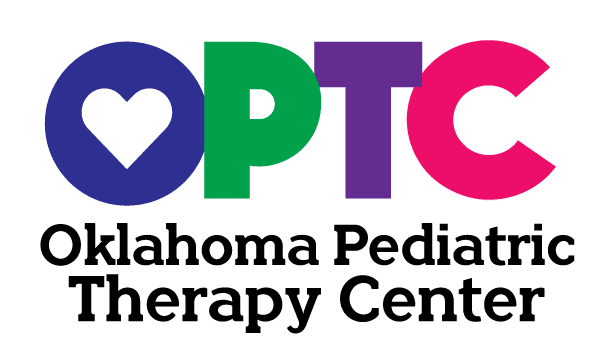OPTC provides a wide range of behavioral therapy services in addition to counseling services, for children and adolescents who are diagnosed with or suspected of having developmental delays or disorders. Children with Autism Spectrum Disorders (ASD), Intellectual Disabilities, Down Syndrome, and significant speech/language delays who often display problem behaviors often place significant stress on children, parents, and families, and create substantial barriers to participation in social and community activities.
The OPTC Behavioral team can assess a variety of developmental, emotional, social, and behavior concerns including but not limited to: Autism, ADHD, Specific Learning Disability (math, reading, or writing), Conduct Disorder, Oppositional Defiant Disorder, Intellectual Disability, Anxiety, Depression, Gifted and Talented, Personality and Adjustment. The family will attend three separate appointments, spread across three weeks – Intake, Assessment, and Feedback.
Common Problem Behaviors:
- Tantrums/Meltdowns
- Noncompliance (such as homework, morning or evening routines, simple commands ‘clean up’)
- Aggression
- Running away from caregivers (elopement)
- Toileting skills deficits
- Sleep problems
- Mild disruptive or destructive behaviors
- Anxiety
- Phobias
- Habit Disorder (hair pulling)
- Tic Behaviors
- Mild self-injury
- Mild food selectivity/food refusal/restricted diet (not the result of a motor skill deficit)
- Social skills deficits
Applied Behavior Analysis- ABA Therapy:
ABA therapy is a specific treatment approach designed for children with Autism and children with social skills deficits. While it has received considerable research in treating deficits associated with Autism, it can be applied to a wide range of childhood behavior concerns. In children diagnosed with Autism it is used to:
- Increase language and communication skills
- Improve attention, focus, memory, and academics
- Improve social skills and play skills
- Decrease problem behaviors
Insurance only provides coverage for children with an Autism diagnosis. However, children without a diagnosis can receive services through private pay options. The younger a child is when they receive services, the greater the long term benefits. Children can begin services as young as age 2. Early intervention in the treatment of Autism is best. Older children also qualify for services but may not see as dramatic of an effect and may attend fewer hours due to school.
ABA therapy is considered an intensive treatment and we require children attend a minimum of 5 hours per week but some children may attend as much as 12-15 hours per week. Appointment times vary based on scheduled of the parents and times available through BCBA’s and RBT’s. Typically appointments are 2-3 hours per session. However older children receiving social skills may have shorter 1 hour appointments. The amount of therapy sessions is based on parent/therapist schedules and insurance authorizations. Most children attend therapy 2-3 days per week but some children come daily depending on the total number of hours they receive.
Psychological Assessment and Behavioral Therapy:
Behavior Therapy is an interactive process between the you, your child, and your clinician. All of the treatment recommendations at Oklahoma Pediatric Therapy Center will be based in the principles of Applied Behavior Analysis (ABA). During the first, session your clinician will work with you to identify one or two very specific behaviors your family would like to address as part of therapy. You may select behaviors you want to increase, such as compliance to adult requests or following daily routines, or you may select behaviors you want to reduce such as tantrums or aggression. Your clinician will assess the behavior through a number of strategies and will make recommendations on how to improve the behavior of concern. Parents will be provided with specific recommendations to implement in the home and community setting in the following week(s).
Follow-up sessions will be scheduled on a weekly or bi-weekly basis to assess improvements in the behaviors of concern. Follow-up sessions typically last approximately 50 minutes. During this time, the clinician will assess how the skills and strategies are working and will work with you to address challenges, advanced skills, or expand to additional settings or behaviors.
During these meetings, the clinician will be working with the child, as well as, his or her parents and caregivers on implementing specific strategies to address the behavior of concern. The clinician will model the skills, have caregivers practice the skills, and then provide feedback on implementation. The therapeutic process is an active process in which the clinician is continually giving caregivers skills to practice in the home or community settings. It is expected that caregivers will implement and practice the skills between each session, which ultimately increases desired behavior and decreases challenging behavior. Again, the therapeutic process is heavily focused on increasing caregiver skills to appropriately respond to challenging behavior and teach desired behavior in the home and community setting. Therefore, it is important that all caregivers actively implement the strategies between visits. During the process, caregivers may be asked to fill out surveys or brief assessments regarding your experience(s), as well as, to monitor improvements in their child’s behavior.
What To Expect During Therapy:
During the course of therapy, the Clinician will meet with the child, parents, and/or caregivers to address a specific skill to improve or behaviors to decrease. During these meetings, the Clinician will be instructing parents and caregivers on specific strategies and teaching skills to increase desired behavior and decrease challenging behavior with their child. The Clinician will model the skills for the parents and caregivers, have the parents or caregivers practice, and then provide feedback to the parents and caregivers. The therapeutic process is an active process in which the Clinician is continually giving the parents or caregivers skills to practice in the home or community settings. Often the Clinician will spend more time actively working with the parents or caregivers providing them feedback on parent-child interactions and will be spending less time working directly with the client themselves. It is expected that the parents or caregivers will implement and practice the skills between each session which ultimately increases desired behavior and decreases challenging behavior in the home and community settings. During follow-up sessions, the parents will discuss with the Clinician how the skills and strategies are working and the Clinician will work with the parents or caregivers to address challenges, or expand the use of skills and strategies to additional settings or behaviors.
As mentioned, the therapeutic process is heavily focused on increasing the skills of the parents and caregivers to appropriately respond to challenging behavior and teach desired behavior in the home and community setting and therefore less time is spent directly interacting with the client themselves. During the process, parents may be asked to fill out surveys or brief assessments regarding their experience(s) as well as to monitor improvements in the client’s behavior and the parent or caregiver’s confidence in addressing problem behavior. Additionally, parents and caregivers may receive written instructions on how to implement skills and procedures in the home and community settings or visual materials to use in the home and community.
Note: We do not provide trauma focused therapy.
Visit the YouTube channel called Everyday Behaviors by Dr. Mary Ann Hubbard for everyday behavior intervention ideas and resources for parents, teachers and professionals.



